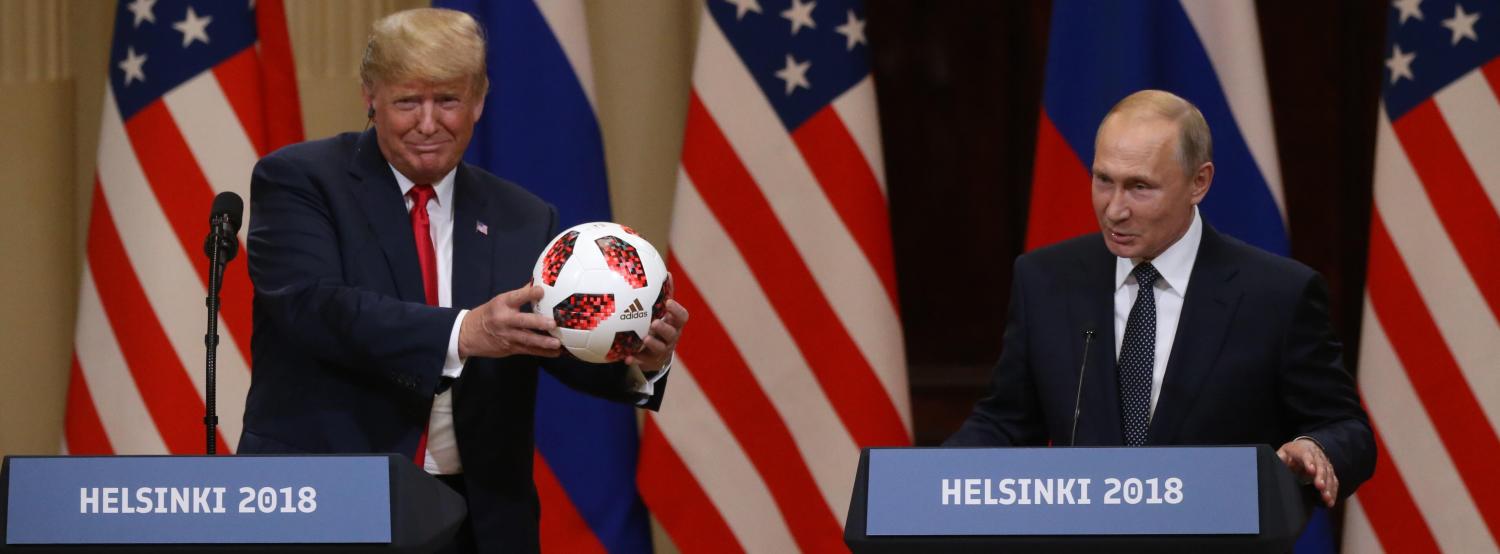The week that was on The Interpreter.
US President Donald Trump wrapped up a trip to Europe to meet with NATO allies, UK Prime Minister Theresa May, and Russian President Vladimir Putin. David Ritchie:
If US allies in Europe were ever in doubt (and they shouldn’t have been, based on everything they had so far seen and heard) now they know: the President is a US-only leader and doesn’t really care much about the institutions that have served the West so well for so long.
And while members of old alliances are aghast, China is quietly making new friends nearby. Cornellia Tremann:
Were China to succeed in rivalling France for influence in francophone West Africa, the breadth and depth of its economic and political engagements in Africa will truly be unmatched.
Several of the Wild Boars boys football team rescued from a cave in Thailand’s north were stateless ethnic minorities. Erin Harris:
The Tham Luang cave, where the boys were trapped, is located in Chiang Rai province in the heart of the Golden Triangle where Myanmar, Thailand, and Laos meet. Almost half of all Thailand’s hill-tribe people, most of whom live in this region, are stateless. At the Ban Wiang Phan school, attended by Adul, 20% of students are stateless and more than half are ethnic minorities. Without citizenship, stateless people suffer from the denial of benefits and rights.
Cambodia will hold elections on 29 July; however, Hun Sen’s Cambodian People’s Party has eliminated any viable political opposition. Milton Osborne:
The ‘original sin’ that led to this set of circumstances occurred when the international community stepped back from involvement in Cambodia’s affairs and allowed the CPP to remain the dominant political force in the country, despite having lost the popular vote in the UN Transitional Authority in Cambodia (UNTAC)–supervised elections in 1993.
Aarti Betigeri on the demographic challenges facing India:
Given India’s vast numbers of young people and apparently high growth rates, it is a shining example of how the demographic dividend can pay off. There’s just one problem: there simply aren’t enough jobs.
Two Reuters reporters arrested 18 months ago in Myanmar while investigating violence against the Rohingya ethnic minority were charged with breaching the Official Secrets Act. Elliott Brennan:
The Reuters case highlights the deeper structural problems stymying Myanmar’s democratic transition. A gaping hole in this transition is the development of the country’s institutions. Last year’s assassination of U Ko Ni, a champion of the rule of law, was a clear sign of resistance to the empowering of institutions that could safeguard emerging norms. Along with the rule of law, Myanmar’s institutions have failed dismally to protect press freedom.
Former DFAT Secretary Peter Varghese recently authored an independent report on Australia’s economic strategy for India. Alex Davis:
The report argues that India is undergoing a ‘major geopolitical repositioning’ as it ends non-alignment and becomes more ‘hard-headed’. Prime Minister Narendra Modi may have stopped talking about non-alignment, but he has hardly shredded the idea. Instead, non-alignment has merely been reimagined as multi-alignment. This fits with the desire for a polycentric world order.
By setting realistic targets and implementation plans, Varghese’s study shows a way forward for the India–Australia economic and commercial partnership. Shyam Saran:
Unlike the case with China, an expanded trade and investment relationship with India will enhance Australia’s room for manoeuvre rather than diminish it. As we head into uncharted waters both in our region and across the world, India–Australia relations have the potential to serve as a reliable anchor of stability and security.
Wayne McLean argues that the Erdogan government in Turkey is weighing the benefits of nuclear proliferation:
The reintroduction of nuclear weapons as a legitimate security currency emboldens potential proliferators, presenting a challenge to one of the key norms of international politics. Turkey is one of many actors who will be watching carefully. There are strong incentives for a nuclear pathway given Turkey’s vulnerabilities and strategic position.
As part of the “Global Britain” policy, the Royal Navy plans to expand its presence in East Asia. Geoffrey Till:
Two questions arise. First, is a significant naval presence in the Indo-Pacific really feasible these days given the dramatic decline in the Royal Navy’s numerical strength, both in platforms and people? And second, would a significantly more substantial naval force in the area contribute to regional peace and security, and would it be cost-effective for Britain itself?
Vivienne Chow on officialdom disparaging the English language in Hong Kong.
Hongkongers are particularly wary about the potential loss of their cultural identity, in which both Cantonese and English play a large part.
Visa requirements disincentivise Indonesian tourists, unlike their Southeast Asian neighbours, from visiting Australia. Ross Taylor:
Most officials also agree that the more Indonesians come to Australia, the more our respective citizens will get to know each other, and that is good for the bilateral relationship. So why this double standard of openly encouraging a broader and closer relationship with Indonesia, while maintaining excessive entry barriers for Indonesians to come here and spend money on hotels, cafes, taxis, and tourist sites?
Trump has consistently rejected the assessments of the US intelligence community, most significantly on North Korea’s nuclear intentions. Nate Kerkhoff:
This method of conducting international relations on a strictly personal basis plays right into Pyongyang’s hands. Trump’s brushing off intelligence reports undermines the massive effort required by the US government to hold North Korea accountable during this delicate detente. The US has the most sophisticated information gathering apparatus in the world, but its value is lost if the president doesn’t use it
